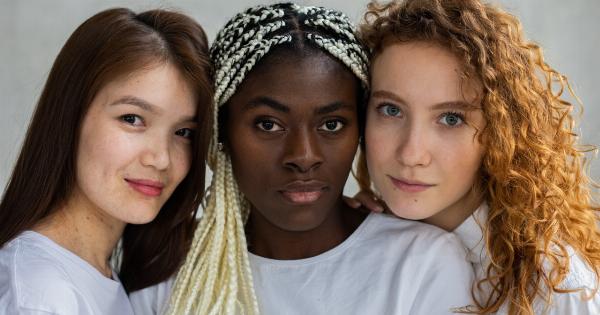In our daily interactions with others, we often experience a certain level of wariness or caution. This wariness towards others stems from various factors and can affect our relationships, interactions, and overall well-being.
Understanding the causes of this wariness can help us navigate our social connections more effectively and establish stronger bonds with others.
Fear of the unknown
One of the primary reasons we feel wary of others is the fear of the unknown. When we encounter someone new or enter unfamiliar social situations, our brain automatically goes on high alert.
This survival mechanism is rooted in our evolutionary past when identifying potential threats was necessary for survival.
This fear of the unknown can manifest as social anxiety, mistrust, or a general sense of unease around others. We may be hesitant to engage in conversations, fear being judged or rejected, or worry about being taken advantage of.
These feelings can lead to a guarded attitude and a reluctance to form new connections.
Past experiences and trust issues
Another significant factor contributing to wariness towards others is past experiences and trust issues. If we have been hurt or betrayed in the past, it can create a lasting impact on our ability to trust others.
Whether it’s a past romantic relationship, a friendship gone sour, or an incident of deception, these negative experiences can make us more cautious about who we let into our lives.
Trust issues can lead to a heightened sense of vigilance and skepticism towards others’ intentions. We may constantly question others’ motives, overanalyze their words and actions, and struggle to give people the benefit of the doubt.
This wariness acts as a defense mechanism, protecting us from potential harm and disappointment.
Cultural and societal influences
Our cultural and societal upbringing also plays a role in shaping our wariness towards others. Different cultures have varying levels of trust, and societal norms define how we interact with strangers and acquaintances.
In some cultures, there is an inherent sense of hospitality and openness, while others prioritize caution and suspicion.
Societal influences such as media portrayal of crime, scams, and fraudulent activities can amplify our wariness.
Sensationalized stories of betrayal and deception can create a mindset that everyone is a potential threat, leading to a sense of constant vigilance and mistrust.
Perceived differences and stereotypes
Perceived differences and stereotypes also contribute to our wariness of others. Human beings have a natural tendency to categorize and generalize based on observable characteristics such as race, ethnicity, gender, or socioeconomic status.
These stereotypes can lead to biases and preconceived notions about others.
When we encounter someone who falls into a certain category or matches a particular stereotype, we may subconsciously project assumptions onto them. This can create a sense of otherness and make us more cautious and guarded in our interactions.
Overcoming these biases and challenging our stereotypes is crucial in building more inclusive and trusting relationships.
Self-preservation and personal boundaries
Being wary of others is also rooted in our instinct for self-preservation and the need to establish personal boundaries. We have an innate desire to protect ourselves physically, emotionally, and mentally.
This self-preservation instinct can manifest as wariness towards others, especially in situations where we feel vulnerable or uncertain.
Setting personal boundaries allows us to maintain a sense of control and protect our well-being. It is a way of communicating our limits and ensuring that our needs and values are respected.
However, if we have had negative experiences where our boundaries were violated, we may become hypervigilant and skeptical of others’ intentions, leading to increased wariness.
Lack of social skills and self-confidence
For some individuals, wariness towards others may stem from a lack of social skills or self-confidence. In social situations, feeling uncertain about how to navigate conversations or fearing judgment can create a sense of unease.
This can lead to a reluctance to engage with others or a fear of making social blunders.
People who struggle with social skills may fear rejection or being seen as inadequate. The fear of embarrassing oneself or being perceived negatively can contribute to wariness towards others.
Developing social skills and improving self-confidence can help overcome these fears and create more positive social interactions.
Media influence and societal messaging
The constant exposure to media and societal messaging also shapes our wariness towards others. In today’s digital age, news headlines, social media posts, and online discussions can cultivate a sense of fear and mistrust.
Media often highlights negative events, emphasizing conflict, crime, and controversial incidents.
Consuming a steady diet of sensationalized news can distort our perception of the world, making us feel more pessimistic and suspicious of others.
The repetitive nature of these messages can create a cognitive bias known as the availability heuristic, leading us to overestimate the likelihood of negative experiences with others.
Impact of personal insecurities
Personal insecurities and low self-esteem can also contribute to wariness towards others. When we feel insecure about ourselves, we may project those insecurities onto others, assuming they are more confident, successful, or judgmental.
This can create a sense of intimidation or inadequacy, making us more guarded in our interactions.
Personal insecurities can also lead to a hypercritical mindset, where we constantly compare ourselves to others and fear being negatively evaluated. This mindset fuels wariness as we anticipate rejection or criticism.
Addressing personal insecurities and building self-esteem can help alleviate wariness towards others and open the door to more fulfilling connections.
Conclusion
Overall, wariness towards others can be attributed to a variety of factors, including fear of the unknown, past experiences and trust issues, cultural and societal influences, perceived differences and stereotypes, self-preservation and personal boundaries, lack of social skills and self-confidence, media influence, and personal insecurities.
Understanding the causes of our wariness can empower us to break free from its limitations and foster more meaningful relationships.
By practicing empathy, challenging our biases, and developing effective communication skills, we can build trust and create a more inclusive and interconnected society.






























